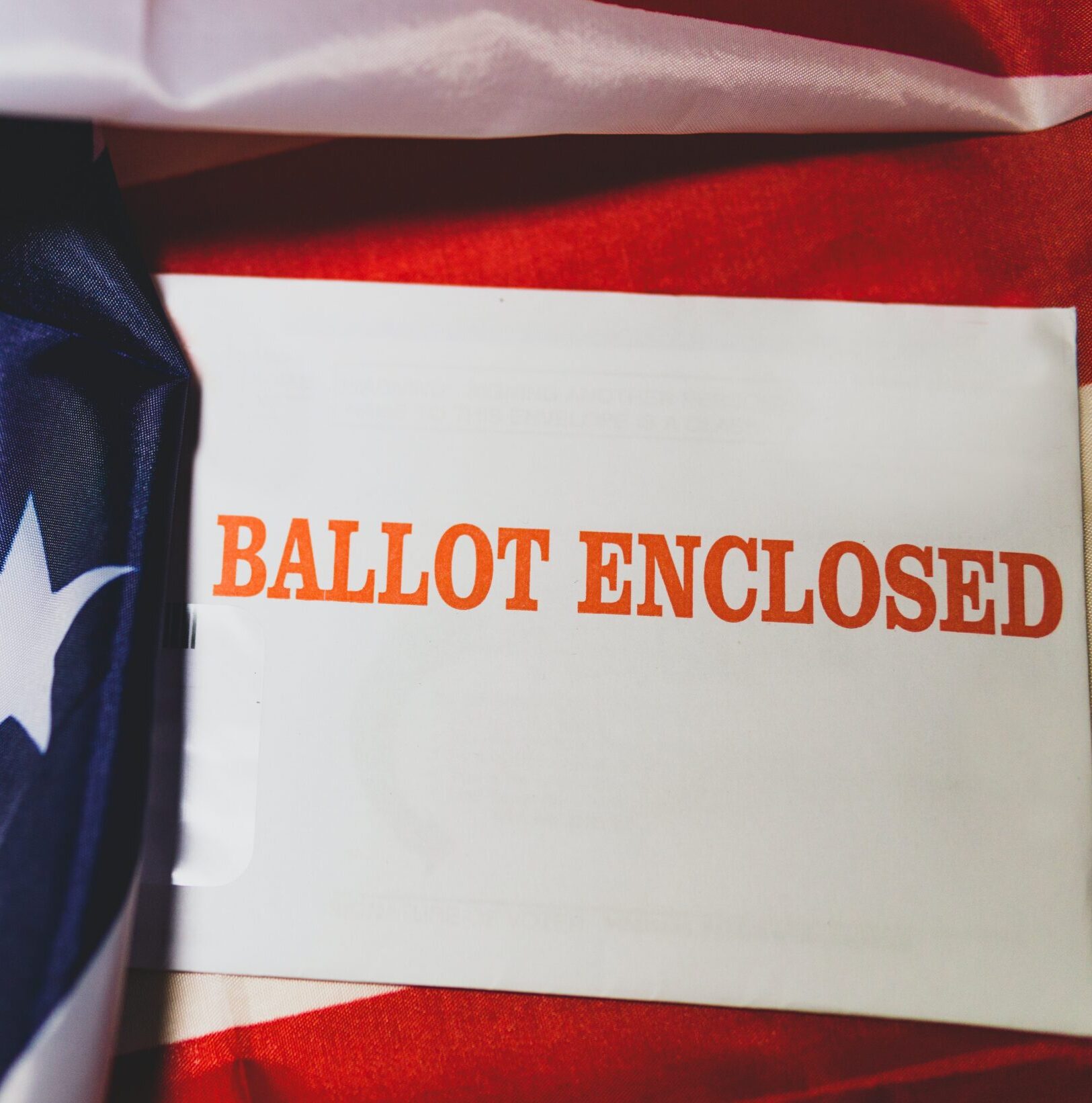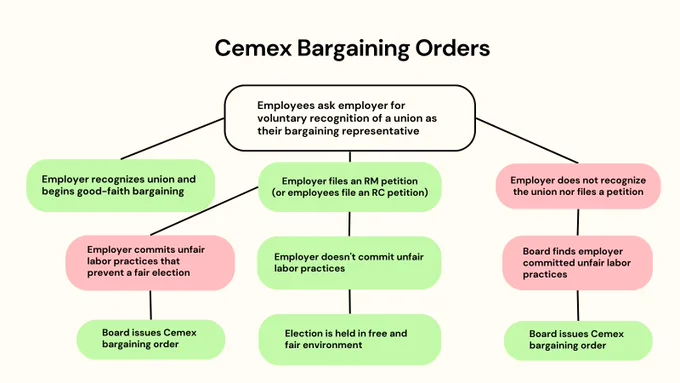Posts tagged union election
NUPD sergeant and sergeant detectives vote to be represented by a union
September 28, 2023 // On Sept. 8, the university filed a request for review of the NLRB’s decision and direction of election, citing that the regional director of the case “either misunderstood the evidence, misrepresented it, or simply ignored it — or a combination of all three — and misapplied the law.” The university reiterated its original arguments in opposing the election, saying the sergeants and sergeant detectives have independent judgment when issuing disciplinary and supervisory actions which would disqualify them from unionizing. On Sept. 15, the American Coalition of Public Safety filed a brief in opposition to the request for review, arguing that the university did not meet its burden of proof to show sergeants had supervisory status. Employees with supervisory status, or the ability to impose disciplinary actions and direct other employees using ‘independent judgment,’ are not protected under the National Labor Relations Act.

Op-ed: Workplace Democracy Dies in Darkness at the NLRB
September 19, 2023 // A current unionization campaign shows the threat. After losing an April election at a New York City store, the Trader Joe’s United union claimed that management tainted the election. How? By informing their employees about the company’s views on unionization and putting limits on posting union flyers on bulletin boards and break-room tables. The union wants the NLRB to force Trader Joe’s to bargain, yet regardless of whether that happens, unions will take advantage of Cemex and launch a new wave of organizing campaigns, even ones they’d normally lose. The Cemex decision should be seen for what it really is: A blatant handout to unions — and a blatant assault on workers and job creators. The best answer to the NLRB ruling is the Employee Rights Act, which, among other things, would permanently ban card check and protect workers’ right to a secret ballot. Workers would get a second election instead of being forced into an unwanted union. Businesses and workers are also likely to challenge the NLRB in federal court. They deserve to succeed. If unions want to represent workers, they should win a vote in a free and fair election.
Here’s why the US labor movement is so popular but union membership is dwindling.
September 6, 2023 // Labor laws in the US make it more difficult for employees to form unions: Around 27 states have passed "Right to Work" laws, making it more difficult for workers to unionize. These laws provide union representation to nonunion members in union workplaces– without requiring the payment of union dues. It also gives workers the option to join a union or opt out. Workplace sectors that were traditionally union strongholds, now make up less of the workforce, such as manufacturing, transportation, and construction.

It’s getting easier for workers to unionize. One simple chart shows the new steps.
August 28, 2023 // In a new ruling, the National Labor Relations Board laid out what will now happen if employers trying illegal union-busting activity. If workers want a union, and employers use illegal tactics in the run-up to a union election that could compromise the election — like firing union organizers, or retaliating against workers engaging in protected union activities — the new rules says workers no longer have to hold a fresh election. Workers will instead automatically get their union and employers will have to bargain with them.

NLRB restores Obama-era rule speeding up union election process
August 25, 2023 // The U.S. National Labor Relations Board (NLRB) on Thursday finalized procedural changes that will speed up the union election process, which have been criticized by business groups for favoring organized labor. The Democrat-led board's rule restores changes to the election process that were adopted during the Obama administration and largely eliminated in 2019 when appointees of Republican former President Donald Trump led the board. Among the key provisions of the new rule are a requirement that elections be held before related litigation is resolved. Under the Trump-era regulation, the board had to rule on issues such as workers' eligibility to vote and alleged unlawful conduct by employers before holding an election.
Allina doctors file to form what would be largest private-sector clinician union in the U.S.
August 14, 2023 // Doctors at one of Minnesota’s major health care providers have filed to unionize, a move that could create the largest group of private-sector clinicians in the entire country. Doctors Council SEIU Local 10MD, which would represent doctors in Allina Health’s system, formally filed an election petition with the National Labor Relations Board on Thursday. That means members will still have to actually hold an election to determine whether or not to unionize.
New Flyer Employee Slams CWA Union with Federal Charges, Claims Union Lied to Employees to Attain “Majority Status”
August 10, 2023 // Mabrey’s charges explain that CWA union officials gained power in his workplace through a process called “card check,” which bypasses the NLRB’s standard secret ballot election process for installing a union. Under card check, employees are denied the right to vote in private on whether they want the union in the workplace, and union officials can instead claim majority status by demanding union authorization cards directly from workers. The card check scheme’s lack of privacy exposes workers to a variety of coercive behaviors from union officials who are seeking to collect cards from a majority of employees in a work unit. Workers often report being told signing the card only requests “more information” about the union or serves some other purpose, even though the card will be equivalent to a “vote” in favor of union representation. Workers have also experienced threats and unwanted home visits during card check campaigns.
eBay charged with multiple unfair labor complaints in struggle with its first union
August 1, 2023 // “They have refused to give us our rights to status quo. Our Weingarten rights. They refuse to recognize us as a union. They refuse to acknowledge the fact that [the union has] been certified even if we present them with certification,” Thomas said. “So they are just continuing to make all these changes and refusing to work with us and refusing to follow their legal right to sit down or their legal responsibilities to sit down and bargain with us at the table.” Though the TCG Union-CWA was formed just this year, workers were set to vote on unionization back in 2020. According to Thomas, before the 2020 vote, TCGplayer management made promises to improve benefits and implement better pathways to promotion.

On the Matter of Card Check, the Losers Are the Workers
July 31, 2023 // Neutrality agreements and the card check process they enable deprive employees of information necessary for making informed decisions about unionization and worse, it opens the door to intimidation by taking away workers’ right to a secret ballot in union organizing elections. Neutrality agreements often require employers to accept a process called card check, which replaces NLRB-supervised secret ballot elections. Card check is an open petition process which leaves employees vulnerable to organizing campaigns that are rife with coercion and deception. Card check can fail to reflect employees' true wishes, undermining the democratic principles on which fair representation should be built. Examples of problems with card check include employees being told to sign a card simply to say they attended a union meeting or to get a free t-shirt. Worse, the study documented testimony from a February 8, 2007 U.S. House of Representatives Committee hearing which detailed that the United Auto Workers had “union employees from other facilities actually visit … employees at their homes. The union’s organizers refuse to take ‘no’ for an answer. ... Some employees have had 5 or more harassing visits from these union organizers.”
Seattle Mariners Retail Employees Vote Out UFCW Union, Defeat Union Boss Attempt to Block Election Using “Card Check”
July 27, 2023 // Over the objection of UFCW union officials, the NLRB Regional Director in May ordered a union decertification election at the request of the Seattle Mariners’ retail employees. Union bosses subsequently filed a Request for Review at the NLRB in Washington, D.C., seeking to halt the election. They argued that a so-called “voluntary recognition bar” should be imposed to block the Mariners’ employees from exercising their right to vote on the union’s removal. However, the NLRB denied the union’s Request for Review on July 25. After NLRB Region 19 certifies the 50-9 vote result, the Seattle Mariners’ retail employees will finally be free from the unwanted UFCW union. The retail workers were able to challenge union officials’ card check drive thanks to the Election Protection Rule (EPR), a reform to the election rules enacted by the NLRB in 2020 following Foundation advocacy. While union officials pre-EPR were able to manipulate the so-called “voluntary recognition bar” to block employees from voting out a union for at least a year after an employer recognized a union’s supposed card check victory, the EPR granted employees a 45-day window in which to petition for a secret ballot election to challenge the card check result.
